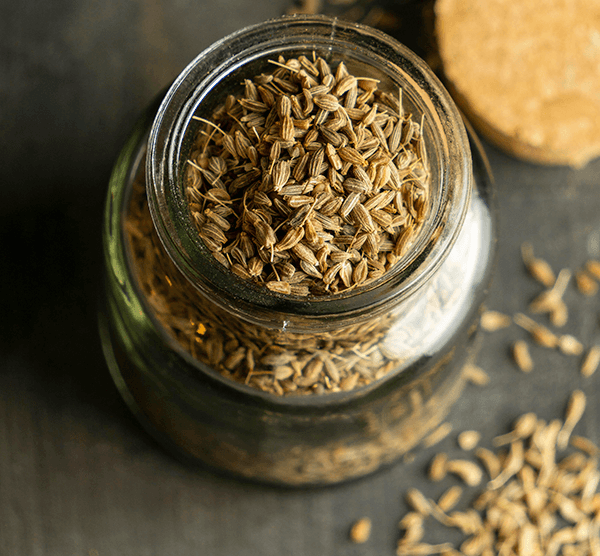- +033 2572 7171
- info@dhanvantary.com

4.5 Rating | 4500 Review

4.5 Rating | 4500 Review
Yavani is the native herb of Egypt. Yavani is known with other common name also such as Ajwain, Bishop’s Weed, Ajowan and more. This herb is widely distributed in whole parts of the world. Yavani is a Sanskrit name of the herb, as it has been used in India since ancient times. In Ayurveda, it is believed to manage vata and kapha. It helps to increases pitta.

The whole plant involves in treating ailments as every part has some kind of active components to cure diseases. The roots of the plants have diuretic activity. The seeds of the plants are known as aphrodisiac, anti-microbial, fungicide, anti-aggregatory. These also tend to decrease lack of appetite, gastro-intestinal infections and respiratory ailments. The fruits of the plant also have capacity to fight as these contain antispasmodic, stimulative and carminative properties, help to cure abdominal diseases and piles.
The plant can eradicate ailments with the effect of phytochemicals present in the plant parts. Seeds of the plant contain flavone, saponins, tannins, glycosides, fats, fibers, proteins, carbohydrates, various minerals like calcium, cobalt, manganese, copper, iron, phosphorous and more. It also contain vitamins like vitamin C, vitamin B complex and more. The essential oil of the plant contain various important active elements. The composition of the essential oil can vary with the regions where it found and made. On the general basis essential oil contains approximately 26 chemicals like the main ingredient thymol, oleic acid, linoleic acid, p-cymene, b-pinene, y-terpinene, tepinene-4-ol, palmitic acid, xylene and more. Its hydrodistilled oil, 8 components are their like thymol, p-cymene, y-terpinene, bi-pinene, limonene and more. The fruits of the plant contain carvacrol, thymol, p-cymene, dipentene, α-terpenine and y-terpinene.
Kingdom
Plantae
Subkingdom
Tracheobionta
Division
Magnoliophyta
Class
Magnoliopsida
Subclass
Rosidae
Order
Apiales
Family
Apiaceae
Genus
Trachyspermum
Species
Ammi
It is cultivated in dry or semi dry areas mainly. It the native of Egypt. It now grows in countries like Iran (eastern regions of Baluchistan), Pakistan, Iraq, Afghanistan and India. In India, it is cultivated in areas of Rajasthan, West Bengal, Maharashtra, Gujarat, Punjab, Bihar, Uttar pradesh and Madhya pradesh.
|
Hindi / Sanskrit |
English |
||
|
Rasa |
Katu, Tikta |
Taste |
Pungent, Bitter |
|
Guna |
Laghu, Rooksha, Teekshna |
Physical Property |
Light, Dry, Sharp |
|
Virya |
Ushna |
Potency |
Hot |
|
Vipaka |
Katu |
Metabolic Property (After Digestion) |
Pungent |
It helps to maintain kapha and vata. It increases the efficiency of pitta.
|
Charak Samhita |
Sushrut Samhita |
|
Shulaprashamana – Herbs that relieve colic, pain |
– |
This herb shows positive analgesic effects and it is of opioid type.
The methanol extract of the plant shows great effect on the gram positive and gram negative microbes such as on multi-drug resistant Salmonella typhi. Thymol chemical present in the plant tends to inhibit the activity of the microbes.
The chemicals present in the plant, shows effect on the calcium channels by blocking it.
It shows properties of hepato protection by normalizing the levels of liver enzymes.
The seeds of the plant shows anti-inflammatory activity.
The fruits shows effects on abdominal pain and gastric ulcers.
It acts as digestive tonic and effective to treat stomach and small intestine problems.
The plant shows effect on the problem of coughing.
The dried extract of seeds of the Yavani, inhibits the aggregation of platelets.
The methanol extracts of fruits shows activity against Setaria digitata worms, adult S. digitata, human filarial worm and more.
The plant has great anti-hyperlipidemic effect.
Fruits extracts have significant dose-dependent anti-fertility effects.
Boiled extract of the plant shows bronchodilator effect on asthmatic airways.
The oil of the plant is used to give relief from joints pain. It also use to cure wounds.
The plant water is distilled to cure disorders like flatulence, low appetite and indigestion.
Fruits, Seeds
Best to avoid Yavani use in people with oligospermia and male infertility.
